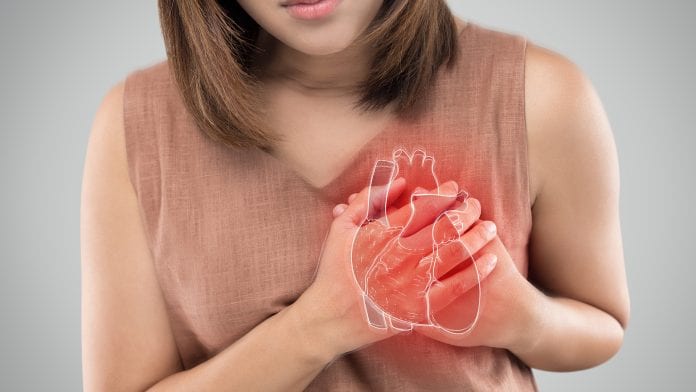
Research shows women wait longer than men to get help, so are urged to call an ambulance immediately if they require acute cardiac care.
There is a misconception that heart attacks are a ‘man’s problem’ but they are equally common in women. On average, women are about 8–10 years older than men when they experience a heart attack and they tend to experience different symptoms, but nevertheless women benefit equally from fast acute cardiac care.
Receiving the best of acute cardiac care
Study author Dr Matthias Meyer, a cardiologist at Triemli Hospital, Zurich, Switzerland, explained how women may wait longer due to the preconception of heart attacks typically occurring in men and because pain in the chest and left arm are the best known symptoms.
“Women and men have a similar amount of pain during a heart attack, but the location may be different,” he said.
“People with pain in the chest and left arm are more likely to think it’s a heart attack, and these are usual symptoms for men. Women often have back, shoulder, or stomach pain.”
In heart attacks caused by acute blockage of an artery supplying blood to the heart, rapid reopening of the vessel by inserting a stent is critical. Faster restoration of blood flow translates into more salvaged heart muscle and less dead tissue, less subsequent heart failure, and a lower risk of death.
During the last 10–15 years, multiple strategies have been employed within heart attack treatment networks to reduce the time delay between symptoms and treatment.
“Women wait approximately 37 minutes longer than men before contacting medical services”
Meyer’s adds: “We found no gender difference in the timely delivery of care by health professionals, with both men and women receiving a stent more quickly after contacting the medical services than they did in the past.”
However, patient delay decreased slightly in men over the 16-year period but did not change in women. Women wait approximately 37 minutes longer than men before contacting medical services. Clinical signs of persistent chest discomfort were associated with shorter patient delays in men but not women. “Women having a heart attack seem to be less likely than men to attribute their symptoms to a condition that requires urgent treatment.” said Dr Meyer.
He concluded: “Every minute counts when you have a heart attack. Look out for moderate to severe discomfort including pain in the chest, throat, neck, back, stomach or shoulders that lasts for more than 15 minutes. It is often accompanied by nausea, cold sweat, weakness, shortness of breath, or fear.”









